Explore web search results related to this domain.
It's often hard for parents and ... there is probably nothing kids would like more. Get up 10 minutes earlier in the morning so you can eat breakfast with your child or leave the dishes in the sink and take a walk after dinner....
Your words and actions as a parent affect their developing self-esteem more than anything else. Praising accomplishments, however small, will make them feel proud; letting kids do things independently will make them feel capable and strong. By contrast, belittling comments or comparing a child unfavorably with another will make kids feel worthless.If you often feel "let down" by your child's behavior, perhaps you have unrealistic expectations. Parents who think in "shoulds" (for example, "My kid should be potty-trained by now") might find it helpful to read up on the matter or to talk to other parents or child development specialists.Parenting is incredibly challenging and rewarding. Here are 9 child-rearing tips that can help.It's often hard for parents and kids to get together for a family meal, let alone spend quality time together. But there is probably nothing kids would like more. Get up 10 minutes earlier in the morning so you can eat breakfast with your child or leave the dishes in the sink and take a walk after dinner.

... Year This easy-to-use yet comprehensive how-to manual provides answers and explanations to the questions and concerns of new parents. From baby-care basics to month-by-month development to common illnesses to health and safety, this book covers it all. There’s also a wealth of tips and ...
With special sections on the older sibling; selecting the right physician; seasonal concerns and traveling with baby; managing childhood illnesses; and nurturing the adopted baby, the low-birthweight infant, and the baby with specific problems. ... Year This easy-to-use yet comprehensive how-to manual provides answers and explanations to the questions and concerns of new parents. From baby-care basics to month-by-month development to common illnesses to health and safety, this book covers it all. There’s also a wealth of tips and advice for couples coping with the many changes to daily life that come with parenthood, as well as full-color photography and graphics throughout the book.Raising a baby, especially for the first time, is exciting and challenging. This is a time for developing the bonds that will last a lifetime, providing your child with the inner resources to build self-esteem and the ability to relate positively with others. It’s also the time for parents to discover who this new person is.What does watching TV do to a child’s brain? What’s the best way to handle temper tantrums? Scientists know. Bridges the gap between what scientists know and what parents practice. Through fascinating and funny stories, the author, a developmental molecular biologist and dad, unravels how a child’s brain develops – and what you can do to optimize it.All new parents are eager to help their baby discover the world around them, and BABY PLAY was designed to help parents engage their infant in activities that will encourage developmental skills. From the first month home through the twelfth, BABY PLAY offers doctor-approved, age-appropriate activities that stimulate discovery, begin communication, and nurture parental bonding. ... Holds and manipulates objects; sucks on everything! ... Demonstrates memory by waiting while feeding is prepared and stopping crying when a person enters the room ... Our recommendations for books on child development for parents.
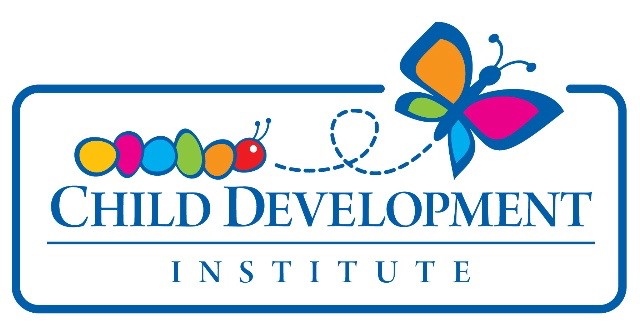
The legs shouldn't hang straight down because it can interfere with hip development and possibly lead to hip dysplasia (a deformation of the hip joint). Your baby's legs should be spread apart and the legs should be straddling your body, which allows for healthy hip positioning, says Dr.
Parenting · Babies & Newborns · Baby Safety · Newborn Baby Care: Your Ultimate Checklist · MORE IN · Newborn Baby Care: Your Ultimate Checklist · Overview · Newborn Baby Care: Your Ultimate Checklist · Care and Safety · How To Change a Diaper Like a Pro · How to Swaddle a Baby · How to Give a Newborn a Bath · 5 Safety Tips for Wearing a Baby Carrier · Why Your Child Needs a 5-Point Harness Car Seat · Development ·The legs shouldn't hang straight down because it can interfere with hip development and possibly lead to hip dysplasia (a deformation of the hip joint). Your baby's legs should be spread apart and the legs should be straddling your body, which allows for healthy hip positioning, says Dr.In addition, follow some basic safety tips: Avoid cooking or drinking hot beverages when your baby is in tow, don't travel in a vehicle while wearing your baby, and avoid activities that increase your baby's risk of falling (like running or bicycling).If you choose to babywear in a carrier, here are five expert tips to keep your baby safe.
:max_bytes(150000):strip_icc()/babywearing-baby-carrier-93d7056ab6734c80b663da85714b6aa8.jpg)

Parents can help kids become independent, resourceful, caring, resilient people, says psychology professor and child development expert Tovah P. Klein.
When a child experiences negative emotions and isn't ridiculed or punished, they learn how to feel, accept, and get through them. As a parent, it can be hard to allow a child to be upset. If you feel your job is to make your child happy, though, their negative emotions will be harder to handle.In my 30+ years of working with children and their parents, as well as conducting original research and population-wide studies, I've come to understand resilience with more nuance.I see it as a set of characteristics that parents can teach their children and nurture through everyday interactions.When crises occur, your ability to keep your own anxiety and fear in check will let you offer support and guidance in a steady way, enabling your child to learn to regulate on their own as they grow up. This is a way to protect them from long-term negative impacts of stress, trauma, or life's many challenges. It's a way, in other words, to make them more resilient. Tovah P. Klein, PhD, is a psychology professor at Barnard College and the director of Barnard's Center for Toddler Development.
Show your child how to say things with their hands, like “bye bye.” Soon your child should try to imitate you and wave “bye-bye” on their own, making a relationship between a movement and a vocal expression.
Give your child things to put into containers and take out. They will try to take them out and put them back on their own, which is great for the development of eye-hand coordination skills.Here are some tips to help give your child the best start in life:Play hide and seek with your infant and see if they can find the objects you hide. You can hide something under a cloth, and say: “Where did it go?”, “Can you find it?”. You should see an increase in your child’s curiosity and willingness to find out what happened to the object.Show your child how to say things with their hands, like “bye bye.” Soon your child should try to imitate you and wave “bye-bye” on their own, making a relationship between a movement and a vocal expression.


Role models—parents and teachers—can demonstrate assertiveness and practice with children using role-playing. ... Teaching children to speak up helps them develop a strong moral compass and stand up for what they believe in.
Parenting 101: 8 ways parents can foster confidence and communication in their kids to speak confidently, handle conflict and stand up for themselves.News / Lifestyle / Relationships / Raising confident kids: 8 parenting tips to help your child speak up and be heardIn an interview with HT Lifestyle, Dr Lakshmy Menon, Consultant Neonatologist and Pediatrician at Cloudnine Group of Hospitals in Bengaluru's Bellandur, shared, “Children learn speaking skills primarily from their peers, caregivers and role models, including parents and siblings.As a result, children grow up learning to repress their thoughts and feelings, leading to poor communication skills. They may become aggressive, disruptive, shy, or struggle to express themselves emotionally. According to experts, the best way to deal with all parent-children conflict is to keep all channels of communication open.

It examined how children use technology with parents or by themselves, whether taking photos and videos, using learning apps and playing games, listening and singing to songs, talking about favourite characters, or chatting on video calls. The researchers found that children were not only interacting with smart devices and appliances when very young, but also that digital tech could have benefits for language development ...
It examined how children use technology with parents or by themselves, whether taking photos and videos, using learning apps and playing games, listening and singing to songs, talking about favourite characters, or chatting on video calls. The researchers found that children were not only interacting with smart devices and appliances when very young, but also that digital tech could have benefits for language development and other skills.The report said that even in homes where the TV was on in the background all day, “each young case study child appeared to occupy themselves with a wide range of play and learning activities in the same room … and paid very little attention to the TV”, with a 25-month-old girl in whose home CBeebies was on, whenever at home, showing “highly developed skills with a wide range of traditional play resources both with and without her mother’s help”. “Many parents” reported their child aged under three had learned signing online, the report said, with one child trying to use signing to tell Google Home what they wanted, before gradually learning that “smart home devices respond to very clearly enunciated words”.Activities of those aged 0 to three often involve sensory exploration and embodied cognition, researchers find“Through these digitally mediated conversations, very young children … develop the capacity to switch seamlessly between languages,” promoting “cognitive growth” and “forging loving relationships” with relatives, the report said. The study, which surveyed 1,400 parents in the UK, including 40 case studies in family homes, with 20 education professionals interviewed, also looked at families’ TV habits, and found “several parents mentioned that their child had learned specific words and phrases when watching certain programmes intently”.
Throughout the year, our board ... doctors, developmental experts, and educators in the country—shares the latest thinking about raising healthy and happy kids. Now we've gathered our all-time favorite nuggets of advice in one place. Broadly speaking, this is what the experts say about how to be a good parent and improve your parenting skills: ... Read on to learn more about what this looks like in practice and how to put these expert tips to good use. Take charge. Children crave limits, ...
Throughout the year, our board of advisors—a brain trust of the best pediatric doctors, developmental experts, and educators in the country—shares the latest thinking about raising healthy and happy kids. Now we've gathered our all-time favorite nuggets of advice in one place. Broadly speaking, this is what the experts say about how to be a good parent and improve your parenting skills: ... Read on to learn more about what this looks like in practice and how to put these expert tips to good use. Take charge. Children crave limits, which help them understand and manage an often confusing world.We've gathered our all-time favorite parenting tips from our board of advisors in one outstanding article that will have a profound effect on your whole family.Your toddler's mission in life is to gain independence. So when they're developmentally capable of putting their toys away, clearing their plate from the table, and dressing themselves, let them. Giving a child responsibility is good for their self-esteem (and your sanity!).A healthy child instinctively knows how much to eat. If they refuse to finish whatever food is on their plate, just let it go. They won't starve. Eat at least one meal as a family each day. Sitting down at the table together is a relaxed way for everyone to connect—a time to share happy news, talk about the day, or tell a silly joke. It also helps your kids develop healthy eating habits.
:max_bytes(150000):strip_icc()/550_101309537-0f2c3c3b6a6b48a69e8fae5169a80587.jpg)
Learn about kids behavioral development, friends, gifted children, learning disabilities, puberty, shyness, and more from the editors of Parents magazine.
Is your kid on track? Here's what you need to know about child development for the older kid, including appropriate behaviors, psychological development, social growth spurts, and emotional considerations.
:max_bytes(150000):strip_icc()/parents_social_placeholder-d92662fa0e70424d92fe1b3719548191.png)

Are time-outs and punishments no longer effective in your home? Here are 5 positive parenting techniques you can use today to diffuse the power struggles in your home and find joy again in parenting. As a positive parenting educator, I’ve been helping families for 15+ years and can help yours too!
If your children are expected to make their beds, brush their teeth, and get dressed before eating breakfast, then maintain this routine every day. PRO TIP: Maintain the SAME schedule on weekends and holidays. That way, you won’t have to experience the backslide that comes on Monday morning! Do you maintain firm technology “policies?” What happens if your kids don’t respect your family’s rules for technology? To be the positive parent you strive to be, it’s essential that technology rules are clearly communicated and that kids know the consequence if those rules are broken.It’s the moment parents know all too well: the moment when the energy in your house totally shifts. All was calm until you handed breakfast to your toddler on the ever-so-controversial blue plate. You know, the one he liked YESTERDAY. Somehow overnight, everything you thought you knew about your child was suddenly wrong – “I want my sandwich in triangles, not rectangles!” or “I want the green cup, not the red one!” or “I hate those socks!!”And then in a moment of clarity, it hits you – you yelled at your child to stop yelling. The phrase Do as I say, not as I do, has never held so much weight. Oh, friend. I’ve been there and I know those feelings all too well. As a former yeller, I remember going to bed hoarse and defeated many nights until I decided there MUST be a better way. After years of studying Positive Parenting and Adlerian Psychology, I created a toolbox of strategies that completely transformed my family.It wasn’t a random display of poor judgment – it was motivated by something intrinsically in your child. Whether that was a lack of skills in managing his big feelings, a desire to get your attention, or a power play to assert his free will – there’s always a reason for the behavior. (Even if he doesn’t realize it – and most times he doesn’t!) The thing to remember is the behavior itself is simply the symptom. Our challenge as parents is figuring out what’s really underneath that frustrating behavior.
Reward desirable behavior as much as possible by verbal praise, touch or something tangible such as a toy, food or money. Both of you should have an equal share in the responsibility of discipline as much as possible. Want more help? Visit the [Parenting Skills] and the [Emotional & Social ...
A place to build parenting skills that help parents to discipline kids from toddlers to teens as well as to encourage children and adolescents to feel positive about themselves and to become the winners they were meant to be. Lots of practical solutions for parents as well as tips for improving communication,building positive relationships and other useful parenting skills. The goal of parenting is to teach kids to develop self-discipline.If one of you is disciplining a child and the other enters the room, that other person should not step in on the argument in progress. Reward desirable behavior as much as possible by verbal praise, touch or something tangible such as a toy, food or money. Both of you should have an equal share in the responsibility of discipline as much as possible. Want more help? Visit the [Parenting Skills] and the [Emotional & Social Development] sections of the CDI Store.Our recommendations for books on child development for parents.If your child is too mad or upset to give you the chips, don’t force the issue. Place your child in time out (to cool off) and then get the chips. ... You should be facing your parents, looking at them and smiling.
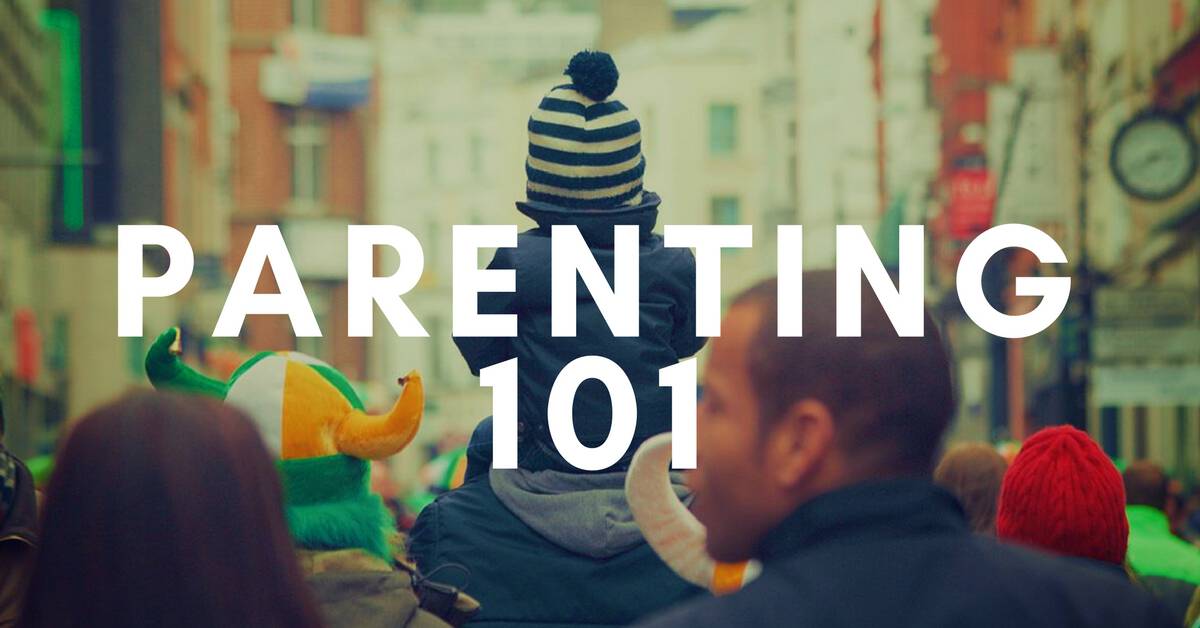

Popular children's YouTube star Ms Rachel has shared her top parenting tips to help kids learn to talk early on. The online sensation, whose real name is Rachel Anne Accurso, 41, launched her now-massively successful channel in 2019, after she said she struggled to find online resources to help son Thomas when he developed ...
Popular children's YouTube star Ms Rachel has shared her top parenting tips to help kids learn to talk early on. The online sensation, whose real name is Rachel Anne Accurso, 41, launched her now-massively successful channel in 2019, after she said she struggled to find online resources to help son Thomas when he developed a speech delay.Popular children's YouTube star Ms Rachel has shared her top parenting tips to help kids learn to talk early on · Ms. Rachel @LoveMsRachel joins Hoda and Jenna to talk about her new children's book “Ms. Rachel and the Special Surprise,” her natural ability to connect with kids, experiencing imposter syndrome and shares some language development tips for parents.The popular children's YouTube star, 41, detailed some of the simple things that moms and dads can do early on with their babies to teach them about language.'As a parent you want to do anything you can to help them, and it's not our fault when our child has a speech delay. 'A lot of things I teach are things I wish I had known for my son. 'I thought, "Wouldn't it be great if there was a show that really encouraged language development and worked on these important milestones and was slow-paced and a real person and very interactive?"'
As they play, you can help them think of new ways to do things and solve problems. Children learn best when you follow their lead and build on their interests. Learn more about exploring with play. Positive parenting helps you feel more confident and less stressed about raising children.
Whether you are sharing parenting or parenting on your own, it can be easy to forget about working on adult relationships. Having strong relationships and good communication with other adults is important for your mental health and shows your child what healthy relationships are like. By caring for yourselves and taking care of your relationships, you are developing a safe and secure place for your new baby to come home to.Tips and videos to help you support the healthy development of your baby or toddler. Everything that happens to us shapes our brains. When caring adults and children do activities together, like talking, singing, reading and playing games, they help children begin to build a strong brain.As they play, you can help them think of new ways to do things and solve problems. Children learn best when you follow their lead and build on their interests. Learn more about exploring with play. Positive parenting helps you feel more confident and less stressed about raising children.Kids who grow up with positive parenting do well at school, make friends, feel good about themselves and are less likely to have behavioural or emotional concerns as they get older. For more information, read about 5 steps to positive parenting. Life is busier with a child in the family.

Parents and public health experts have a lot to say about what adolescent girls do on their phones. We asked teens to weigh in.
Psychologists suggest teenagers take social media breaks, and ask themselves as they scroll: “Do I feel bad about myself while looking at this?” Public health experts recommend “adult monitoring” and setting clear boundaries for when and where teens have access to their phones. The surgeon general wants parents to keep their child’s bedroom device-free for at least an hour before bedtime, and through the night.


Adolph Brown, family clinical ... The Parent Test on ABC, as well as psychologist and author Dr. Patricia Dixon. Together, they break down some of the things dad particularly should avoid saying to their sons and daughters. See what they are, below. Related: People Who Received Very Little Affection in Childhood Often Develop These 14 Traits ...
Adolph Brown, family clinical psychologist and the former co-host of the hit ABC series The Parent Test on ABC, as well as psychologist and author Dr. Patricia Dixon. Together, they break down some of the things dad particularly should avoid saying to their sons and daughters. See what they are, below. Related: People Who Received Very Little Affection in Childhood Often Develop These 14 Traits as Adults, Psychologists SayPsychologists weigh in on some of the most damaging phrases.Constantly calling out your child isn’t the best way to parent. “Saying these things imply disappointment and overlook the efforts your [child] has already made,” Dr. Dixon points out. “Instead of recognizing hard work, they focus solely on shortcomings, which can lead [the child] to feel that [their] best efforts will never be sufficient for your approval.Fathers are encouraged to prepare their children to be independent, autonomous functioning adults. This requires ‘pushing’ them to face ‘the big world’ out there as opposed to the often ‘embracing’ of mothers. Though, being pushed can create anxiety and correlate to years of relationship estrangement.” ... Dr. Adolph Brown, family clinical psychologist and the former co-host of the hit ABC series The Parent Test on ABC

Boredom promotes creativity, ... or plunge into imaginative play. It is through self-driven exploration that children develop cognitively and emotionally. Not being a helicopter parent....
Boredom promotes creativity, problem-solving, and independence. When children have nothing structured to do, they invent games, explore their surroundings, or plunge into imaginative play. It is through self-driven exploration that children develop cognitively and emotionally. Not being a helicopter parent.Sadhguru's advice on handling conflict Helicopter parenting, though criticized, can be beneficial when implemented carefully. Close parental involvement ensures that children receive emotional support and guidance during critical developmental stages, fostering a sense of security and confidence.Parents often face criticism and self-doubt, but what appears as 'bad parenting' can actually be beneficial. Allowing children to experience disappointment, failure, and discomfort builds resilience and problem-solving skills. Giving kids space to struggle and learn fosters independence."Allowing kids to experience discomfort and situations of conflict and confrontation so they can develop the necessary skills to process and navigate said conflict, and with your guidance before and correction after - learn to compromise when necessary and resolve conflicts effectively," writes a third user. Everyday strategies that will transform your child's personality Many parents think that their children should always be entertained.
Watching your child grow and develop is one of the most exciting parts of being a parent, especially in the early months when it seems every day brings a new skill.
If you have any concerns about your child’s development, or if they seem to be behind in more than one of the areas listed below, speak with your doctor. Source: Well Beings: A Guide to Health in Child Care, 3rd edition · Read, speak, sing to your baby: How parents can promote literacy from birthThe table below is a general guide for development from birth to age 4. Remember, all children are different and develop skills at different times.Children develop skills in several different areas:
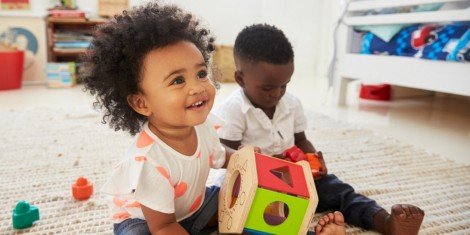
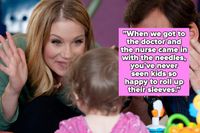
"I'll admit it was sneaky, but it worked. I never really had a problem getting them to nap or go to bed."
7."As a child, my parents told me if I did something bad, I was going to 'baby jail.' I believed in baby jail until I was like 12 years old. If I started crying in a public place, my dad would say, 'Stop that. You don't want to go to baby jail, do you?' And then I would just scream louder like, 'I don't want to go to baby jail!'8."I said that fairies came to the house in the middle of the night and would take away pacifiers, bottles, sippy cups, or anything my child was too old for. It worked great; there was no arguing over items they had outgrown. No one was to blame, not the child or the parent!10."My younger brother was my parent's fourth child, so my mother learned a trick or two by the time he came around. It was about making my brother think he had options and control of his situation.Everyone knows that lying is objectively bad. But when it comes to dealing with toddler tantrums, stubborn kids, and the like, all parents know that white lies are a necessary evil. And sometimes, you hear about a parenting trick that is just too good to forget.
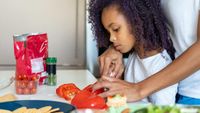
It is important that any parents of anxious children know that this research does not mean they are to blame for their child’s anxiety. There are many factors that influence the development of social anxiety.
This study, along with previous research, finds a link between overprotective parenting and social anxiety. This study suggests that this relationship may occur because overprotective parenting doesn’t give children the chance to develop their emotional regulation skills, which then increases the child’s risk of developing social anxiety.Dr. Cara Goodwin, PhD, is a licensed clinical psychologist and mother to four children. She specializes in child development and has spent years researching child psychology and neuroscience and providing therapy for children of all ages and parent training.Have you ever worried you may be too overprotective as a parent? A recent study published in the Journal of Social and Personal Relationships examined how overprotective parenting is related to emotional regulation and anxiety in children.How can parents avoid overprotective parenting and help their children to develop emotional regulation skills?

There's no such thing as a perfect parent, says child development expert — and mom of three — Dr. Tovah Klein. Luckily, kids don't need their parents to be perfect.
Tovah Klein is director of the Barnard College Center for Toddler Development. ... There's no such thing as a perfect parent, says Tovah Klein. "Being a parent is so humbling. It's throwing at us probably daily [reminders that] we are far from perfect," says Klein, a child psychologist, author and director of the Barnard College Center for Toddler Development.A child might mistake their parent's outburst as something more serious and long-lasting. That can lead to self-blaming and shame, which can cause negative long-term effects to their mental health. Children who are regularly yelled at are more likely to develop behavioral problems, low self-esteem and depression, according to a 2013 study published in The Journal of Child Development.In her latest book "Raising Resilience," which was published in September, Klein shares some examples of moments she let her emotions get the better of her when raising her own three now-grown children. Like most parents, Klein raised her voice in heated moments on more than one occasion: "I could really yell at my kids," she says.She points to "rough times" in the evenings when her children were younger and could become rowdy between dinner and bedtime. The rowdiness could sometimes devolve into loud arguments that left Klein "embarrassed if people would have come over to my house at 6 p.m.," she says. Yelling is common, even understandable, in the heat of an argument, she adds — but it's far from ideal, and parents should commit to repairing the situation once everyone has calmed down.




:max_bytes(150000):strip_icc()/babywearing-baby-carrier-93d7056ab6734c80b663da85714b6aa8.jpg)

:max_bytes(150000):strip_icc()/550_101309537-0f2c3c3b6a6b48a69e8fae5169a80587.jpg)
:max_bytes(150000):strip_icc()/parents_social_placeholder-d92662fa0e70424d92fe1b3719548191.png)



